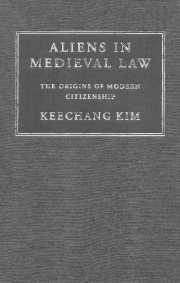9 - Conclusion
Published online by Cambridge University Press: 08 July 2009
Summary
‘All men are either slaves or free men.’ This statement had long been the basis, the starting point of all reflections on personal legal status in Europe. The statement, however, conceals an outlook which has become unreachable for people today. It expresses ideas which are so grotesque and disturbing to the modern mind that they have been gently removed from the realm of the thinkable and put away in an obscure corner of our mental world where access is prohibited. In short, the statement contains ideas which are now taboo.
The voluminous studies on slavery accumulated during the last two centuries have, on the whole, failed to dismantle the mechanism of taboo which shields these forbidden ideas. The reason for their failure can be explained as follows. Most studies on slavery start with the assumption that slaves were chattels, or objects which need not and must not be discussed on the same platform as persons. Once slaves are thus removed from the company of persons, slavery can be discussed and understood using the terminology and the categorical divisions familiar to us. First, for example, it is entirely proper to maintain a sharp distinction between free-men and slaves because the division is to be understood as drawn between persons and things. There is nothing even remotely surprising about denying personal liberty to entities which we classify as chattels.
Information
- Type
- Chapter
- Information
- Aliens in Medieval LawThe Origins of Modern Citizenship, pp. 200 - 211Publisher: Cambridge University PressPrint publication year: 2000
